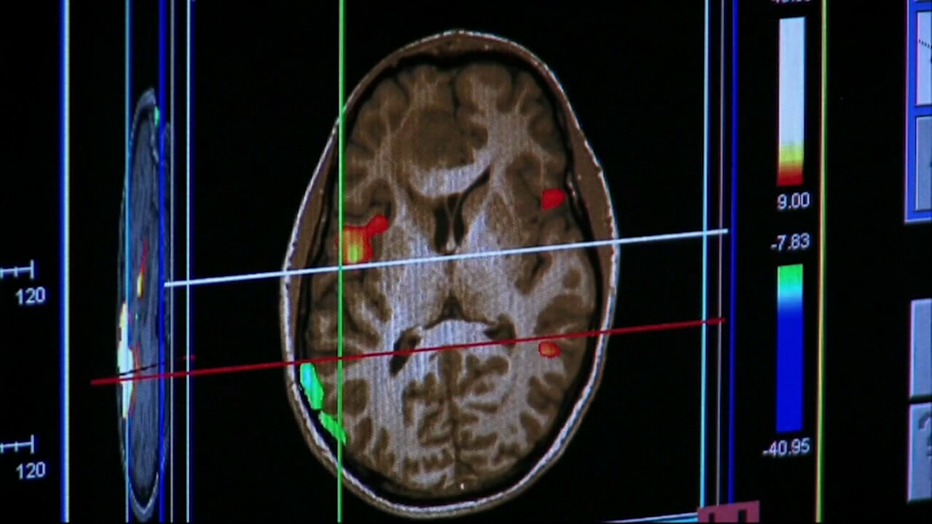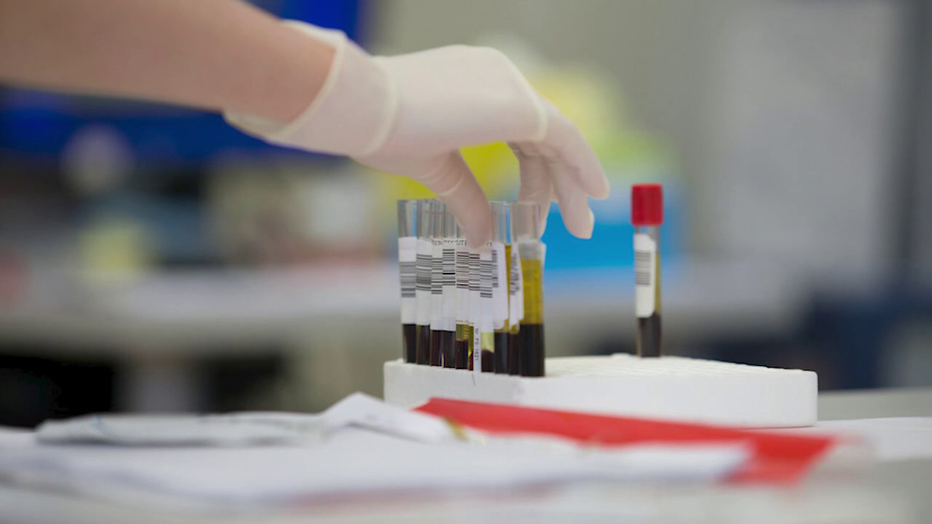Blood test highly effective in determining if memory loss is due to Alzheimer's disease: Study

Could a blood test help diagnose Alzheimer's?
A study published in the Journal of the American Medical Association found a specific blood test known as the p-tau217 can determine if someone's memory loss issues are caused by Alzheimer's disease.
TAMPA, Fla. - It's a fear many of us have as we get older. Alzheimer's is debilitating and it's hard to watch our loved ones go through it, but new research shows a simple blood test could be key in diagnosing the disease and could be a game changer in slowing its progression.
According to the study published in the Journal of the American Medical Association, a specific blood test known as the p-tau217 can determine if someone's memory loss issues are caused by Alzheimer's disease.
"The diagnosis of the disease is very important to make as soon as we can because people who are treated sooner do better," neurologist Dr. Susan Steen said.
PREVIOUS: Alzheimer's treatments, drugs showing some promise, health experts say
That's because currently there are two approved medications to treat someone in the early stages of Alzheimer's. Getting on the medicine as soon as possible while still in the early stages can dramatically slow its progression, but once that window's missed, so is the opportunity to slow it down.
As Dr. Steen explains that often times patients don't get the diagnosis soon enough.
"When people come in and they have a memory problem, and we do memory tests and we do brain imaging like CT scans and MRI's, many times we're wrong," Dr. Steen said.

According to the study's results, specialists are accurate in diagnosing Alzheimer's disease in patients about 73% of the time and primary care doctors are accurate about 61% of the time. That's compared to the blood test, which was found to be accurate 91% of the time.
The test works by measuring levels of the p-tau217 protein, which is linked to the presence of Alzheimer’s pathology in the brain. The test has also been shown to detect the disease even before the person begins experiencing symptoms.

"We all need a better, a faster way primarily, and an easier way to make this diagnosis for folks who have this disease in order to help them get on appropriate therapies and maybe, adjust their medications, adjust their lifestyle, plan their life," Dr. Steen said.
Currently, the test is not FDA-approved to detect Alzheimer's disease, but Dr. Steen says the tests can be ordered by most doctor's offices and could still be helpful in people with memory issues. Researchers say it could be one to two years before clinical guidelines in place for the use of blood tests in primary care.
SIGN UP: Click here to sign up for the FOX 13 daily newsletter
WATCH FOX 13 NEWS

